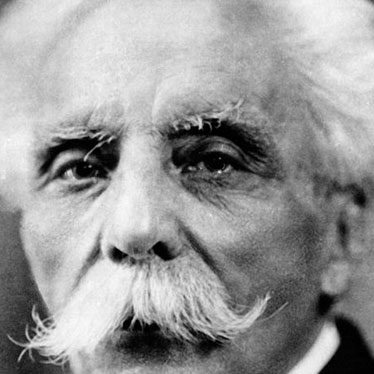
While names like Mozart and Beethoven are instantly recognized regardless of whether one is a classical music fan, Gabriel Fauré is rather more obscure except to music students and professionals. He was 79 years old when he died in 1924, with his career spanning from the Romantic Period into the Modern Period.
Fauré is widely considered one of France's greatest composers. Two of his most well-known works are the choral-orchestral "Requiem" and vocal piece "Après un Rêve." He was as regarded for his personal nature as he was for his work, both of which are often described as "gentle and refined." Even so, he employed disruptive harmonies and modulations, which greatly influenced future composers.
Indeed, his willingness to layer in new modes on top of classical foundations is seen in the profound changes he made to the curriculum as head of the Paris Conservatoire once he was appointed in 1905. He not only brought in independent judges to participate in judging admissions, competitions, and examinations, he expanded the range of music being taught.
Curious to learn more about Fauré? Read on.
- Fauré was born into a family of the minor aristocracy, whose roots date back to the 13th century. Despite this status, the family didn't have much money and young Gabriel was sent to live in a foster home until he was four-years-old.
- He was with his family for only five years before he was sent to Paris at the age of 9 to study at the School of Classical and Religious Music. One of his teachers at the school was Camille Saint-Saëns, with whom he became friends with for the rest of their lives.
- For his first job, Fauré was appointed chief organist at the Church of Saint-Sauveur, inRennes. He was "asked to resign" after four years there when he was caught sneaking out during Mass for a smoke.
- Very little of his time was spent composing. Financial pressures required Fauré to work as an organist and private teacher during his early years and later as professor, inspector, and administrator with the Paris Conservatoire. As an inspector, it was Fauré's responsibility to travel to conservatories throughout France.
Most of his composing was done during July and August, when school year was out and he could leave Paris. He most enjoyed composing by Swiss lakes. He first visited Switzerland in 1871, when he went to visit one of his brothers, who lived in Rambouillet. At the time, Fauré sought to escape the violence in Paris following the defeat of Emperor Napolean III and the collapse of the French Second Empire.
- Prior to the civil violence in France, Fauré volunteered to fight for France during the Franco-Prussian War in 1870 as an infantryman. He saw heavy action as part of the regiment fighting to lift the Siege of Paris. He was awarded the Croix de Guerre, a French military decoration for bravery.
- On more personal notes, Fauré had his heart broken by the daughter of Pauline Viardot, Marianne. The couple were engaged for a time, but Marianne broke it off in 1877. He eventually married the daughter of sculptor Emmanuel Fermiet, Marie. Their marriage has been described both as "affectionate" and "tense." Fauré had many affairs, including one with the woman who would become Claude Debussy's second wife, Emma Bardac.
- Despite the domestic problems, Fauré and his wife Marie had two sons. Marie insisted that the boys carry both their surnames, thus the boys, Emmanuel and Phillipe, went by Fauré-Fremiet. Emmanuel earned some reknown in his own right as a biologist.
- Fauré earned very little money from his compositions. He sold his works outright to the publisher, generally for around 50 francs each, and earned no royalties.
- As a professor of composition, he taught many future composers such as Maurice Ravel, George Enescu and Jean Roger-Ducasse.
- Despite being a professional organist for over 40 years, he left no solo compositions for the organ.
- In addition to his performing and teaching duties, Fauré also wrote music criticism for Le Figaro from 1903 to 1921. His kindly nature made him uncomfortable as a critic and he tended to focus on each work's positive attributes.
- Like Beethoven, Fauré began to lose his hearing as he got older. He not only suffered from difficulty in hearing sounds, but the sounds he did hear were distorted, making it impossible for him to continue teaching.
- Honors late in life included the Grand-Croix of the National Order of the Legion of Honour, which was rarely awarded to musicians. He was also given a public tribute in 1922, which was described in The Musical Times as "a splendid celebration at the Sorbonne, in which the most illustrious French artists participated, [which] brought him great joy."
The information here is has been sourced from Classic Cat, Biography.com, and Classical.net.


